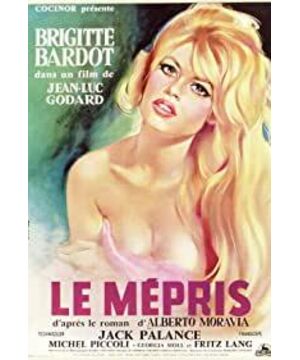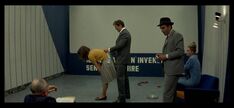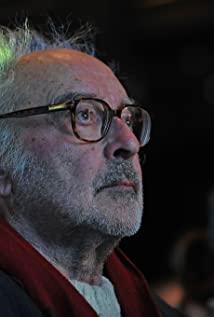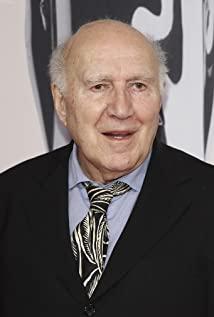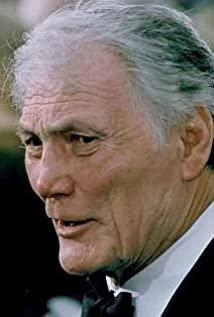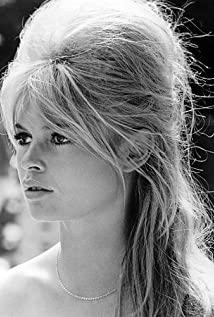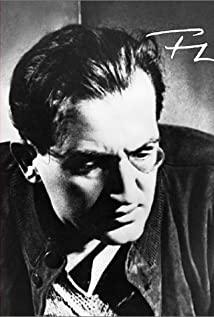And in their triumph die, like fire and powder,
Which as they kiss consume.
—Romeo and Juliet, II. vi.
In the deep, melodious string music that runs through the play, the film ends with a Humble cross-examinations and affectionate responses unfolded. Camille and Pol lay naked on the bed, and the woman kept asking the man, "Do you like me? Do you love me? Do you love my thighs? Do you love my eyes? You love every part of my body. A place?", the man replied with a string of "Oui", "I love you whole, thoughtfully, intensely". That's enough, Pol, I love you too.
The love at the beginning is like a bright piece under a red filter, warm and unreserved. Does cutting to white symbolize the retreat of passion and the breeding of suspicion? In the end, the director used a blue filter to end this still scene. Just like the vast ocean that I saw at the end of the film, the camera was pushed into the distance. It was a helpless surrender and return to nature. sacrifice.
This is my first guess at Godard's intentions: an outline hint at the overall structure of the film. Some say it's him playing a game of skill, but what's the point? There are always rules in the game, and there is no lack of purpose. I don't know if the above speculation is tenable, but I easily found another coincidence: red, white and blue are the colors of the French flag. Was this again Godard's intention?
It is said that Godard himself thought the film was a failure, probably because the film was a commissioned product. Although there were sufficient shooting funds, it could not fully show his ideas, which deviates from the original intention of the "author's film". This is also the feeling that playwright Pohl has when confronted with the swagger of American producer Brock Hugh. Through the use of red, white and blue filters, he seems to be declaring: this is a great French film, a work of personality that is not held hostage by the rules of the Hollywood game. Boll and Camille in the play are rather two shadows of Godard. Bohr's helplessness and submission caused Camille's suspicion and dissatisfaction, which inspired her contempt for Bohr's escalating step by step, as if she was also the director. Godard was introspecting himself, using one of himself to drag the other's clothes, with disdain in his eyes, while the other, clearly feeling the loss of dignity, hid all the sullenness, compromised and agreed with him in the predicament. struggle.
I've always been intrigued by this metaphorical "two-tier" layout. From the very beginning, the film revolves around the shooting of a "Ulysses". In reality, the emotional entanglement between Bol and Camille is exactly the projection of Ulysses (that is, Odysseus) and Penelope in this film. According to Fritz Lang, the director of "Ulysses" in the play, Ulysses' departure from Troy was just due to suspicion. The conflict with Penelope accumulated to a certain extent. He used the pretext of fighting to stay away from right and wrong. He was reluctant to go home for ten years and wandered on Idaga Island, also to avoid his wife. When her wife stopped loving him, he tried to save it, but it was too late. Not to love is not to love. As Camille said to Bol in the film, "I still loved you yesterday. I don't love you today. It just happened so suddenly." Bol creates opportunities for Camille and Brockius to be alone time and time again. Camille was extremely reluctant at first, but later, she no longer trusted Bol's love, so she simply abandoned Bol, kissed Brockius, and finally left together.
"I used to think Camille would leave me. I thought it might be a disaster. Now, it's happened. We used to live in a cloud of inexplicable things, but we were enchanted by a wonderful relationship. Accidental, crazy, desperate recklessness happened."
Je t'embrasse. Adieu. Camille.
As Camille rides into Brock's Alfa Romeo and rushes toward a new life, the scene alternates between the moving car and the rolling farewell letter. Penelope finally couldn't stand Ulysses and ran off with a suitor. Director Lang said that Ulysses had to kill the suitor in order to regain Penelope's love. Ball didn't do it. The last car accident came very suddenly, violent ends, and then there was peace. "Ulysses" was in an orderly shooting, facing the sea, but there was no spring blossoms. I don't know if Godard had a point here, or if he was picking up his grievances after a period of introspection and venting his emotions to let the Hollywood producer die. However, he also let Camillo die pessimistically. The price of radicalism and persistence is terrible, and the exchange may be such a death. And what about Bol? A man hangs alone on the top of the mountain, looking at the sea, but can't speak.
I recommend
2008-11-02
View more about Contempt reviews


